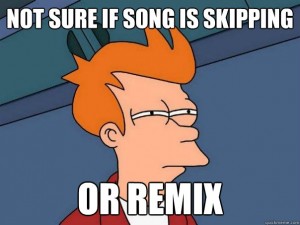”PLUR stands for peace, love, unity, and respect. It originated in rave culture, probably in the 90’s. That was when everything started out, wearing beads to a rave I guess started as a way for people to hide their pills. PLUR is a belief, or a way of life (or way of rave, haha), it’s like a way you’re supposed to act at those kind of events. I probably learned it at my first rave, back in high school. Junior year or so. ’08 or ’07 I think. I guess some people change the order of the letters to what they think the most important parts are. A friend of mine says LURP instead, so love comes first, followed by unity and so on). PLUR isn’t really taken that seriously anymore, at least in mainstream rave cultures. Not many people know what it actually means anymore.”
Most large social events have a certain etiquette; a set of principals by which those attending these events can base their behavior. For raves and modern music festivals, PLUR is used as the overarching rule. In events like raves, which can have radically different social norms then one might see in everyday life, it is often important to establish some kind of mutually agreed-upon code of conduct.
Even though the controversy and negative attitude surrounding rave events may have subsided in recent years, the events are still subject to intense scrutiny. PLUR may serve as both a unifying moral code to those attending the events, and a sort of response to the negative labels that were initially attached to rave events.

